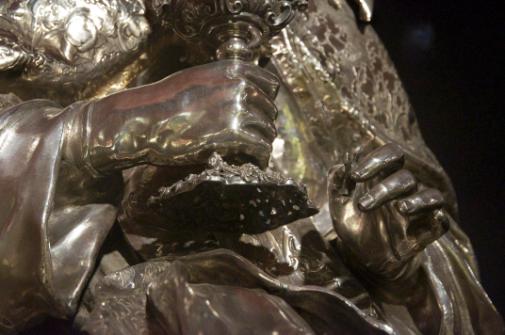Reflections on Silver

Monday 28 October 2019, 4.30PM
Speaker(s): Professor Helen Hills (University of York)
Silver is a strange and paradoxical material, endowed with peculiarly transformative capacities in the early modern world. Brutally extracted from the earth in the Andes, it fed Spain's empire, fired the engine of capitalism with coins, currency and chance of profit, and massively impacted commodity frontiers and global trade. But at the same time, it was associated with purity and refinement of all kinds. The silver sword, silver inlaid guns, and the silver tipped cane designated political prowess and distinction; silver thread in a gown, silver trembleuses, epargniers and teapots shimmered with erotic allure and social sophistication; silver bound missals, silver reliquaries, carte di gloria, pyx, chalice and 'plate', communicated the divine to humankind. Politically, socially and spiritually silver promised and bestowed polish, purity, and refinement. Its sheen glittered with the chance of elevation and was guarantor of success. Yet silver also marked the ruthless plunder of European colonialism, the genocidal degradation of native workers, and ecological ruination. Brutal conquest; remorseless exploitation; social, political and religious refinement. Was one somehow necessary for the other, threaded through the dark and occluded machinations of European power systems? Early modern silver was a peculiarly energetic solvent and productive site. Embedded in power relations, coloniality, and matters of refinement silver was a particularly fraught, agile and transformative material. Might its peculiar paradoxes be usefully thought in terms of a materiality of trauma?
Location: BS/005, Bowland Auditorium
